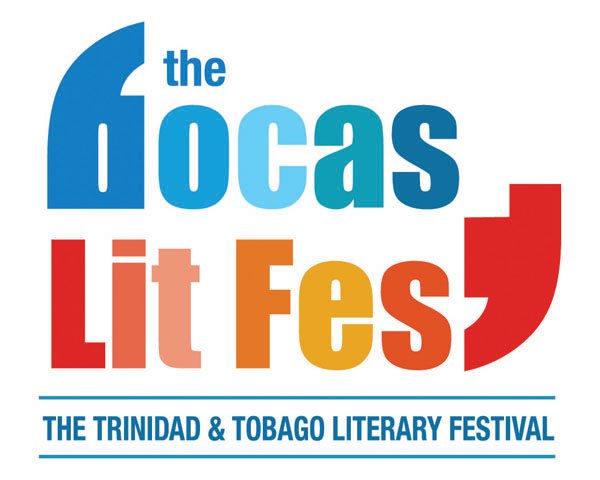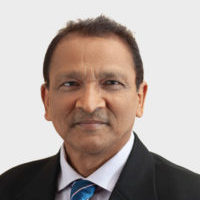 It seems that the city of Port of Spain has a no-entry sign for Indo-Trinidadian (Indian) cultural performers. The Fiesta Plaza in MovieTowne does not entertain these kinds of artistes. The Live Music District in the capital also does not showcase cross-over orchestras such as Dil-E-Nadan, T&TEC Gayatones, Karma, and KI & the Band.
It seems that the city of Port of Spain has a no-entry sign for Indo-Trinidadian (Indian) cultural performers. The Fiesta Plaza in MovieTowne does not entertain these kinds of artistes. The Live Music District in the capital also does not showcase cross-over orchestras such as Dil-E-Nadan, T&TEC Gayatones, Karma, and KI & the Band.
The recently-concluded NGC Bocas Literary Festival (April 25-29) is yet another example of discrimination against Indian cultural performers in Port of Spain. The powers residing in Port of Spain have demonstrated their biased belief that (a) Carnival is the only form of national culture in the multi-ethnic society, (b) Indian culture should be pushed behind the Caroni bridge, and (c) at best, Indian culture should be confined to a token show of tassa drumming and an Indian dance. This marginalised treatment is showcased every time at the Caribbean Festival of Arts (CARIFESTA).
The latest published Government CSO population census in 2011 revealed that Indians form the largest ethnic group in Trinidad and Tobago (T&T). Yet they constitute less than ten percent (10%) of the attendees and participants at Bocas Lit’ Festivals. It seems as though Indians have silently and individually decided to boycott this biased annual event. The fact that the main event takes place in Port of Spain, where few Indians live, also makes it challenging for Indians to attend.
Bocas Lit’ Fest is a great, exciting extended weekend event of readings, discussions, performances, interviews, workshops, storytelling, music and film screenings. The National Library (NALIS) venue is abuzz with activities mainly with local, regional and international writers, readers, publishers and critics of literary and non-fiction works.
The festival’s founder and director, Marina Salandy-Brown, must be commended for this initiative. Running for eight years, Bocas Lit’ Fest has emerged as the Caribbean’s premier annual literary festival.
On Bocas Lit’ Fest, literary critic Dr Raymond Ramcharitar wrote: “[T]he main concern is not promoting literature or art, but establishing the entitlement of certain people to produce, profit from, and control literary and artistic production, always at the expense of others” (Guardian 25/04/12). I interpret “at the expense of others” to also mean the exclusion of Indian cultural performers.
This year, Bocas Lit’ Fest hosted extempo deliveries and workshop on extempo composition, but no bir-a-ha workshop or renditions. A biraha is an impromptu song composed on any subject, religious or secular. It may break all bounds of propriety and social rules. It may even subvert accepted practices and customs as well as ridicule respected citizens. A biraha is sung as a solo item and may or may not be rendered with a dholak or typical nagara drum. It is accompanied by a dance (ahirwa nach) punctuated by rhythmic, fast footwork performed after each stanza.
Bocas Lit’ also included a workshop on fictional biography and biographical fiction based on the life of calypsonian “Kitchener”, and a documentary film on the “Calypso King” from Costa Rica. Again, no workshop or film or discussion or performance on biraha, chutney or pichakare.
Both chutney and pichakare are musical forms indigenous to Trinidad. Chutney soca is a crossover genre incorporating soca elements and Hindi-English, sung with instruments such as the harmonium, dholak and dhantal.
Pichakare is a type of social-commentary song created by Ravi-ji, a spiritual leader, as a counterpoint to political calypsoes which defamed Indian politicians and personalities. It is sung in Trinidad Hindi (Bhojpuri) and English on stage during Phagwa, the Hindu festival of colour and harvest.
This year’s edition of Bocas Lit’ Fest also featured monologues by Carnival Midnight Robbers. The festival did not showcase an excerpt of Ram-leela or any of its characters.
Ram-leela is perhaps the oldest living form of free outdoor folk theatre in the Caribbean. Villager actors play the role of animals, clowns, humans, saints, gods and demons through masks, costumes, props, gestures and body movements. In his Nobel Prize acceptance speech in 1992, poet and playwright Derek Walcott spoke glowingly about Ram-leela in Felicity in central Trinidad. In 2008, UNESCO proclaimed Ram-leela as an intangible cultural heritage of humanity which should be protected and promoted.
In all of its dramatic performances, the Bocas Lit’ Fest has never included folktale figures such as Birbal from Trinidad and Balgobin from Guyana. They are the Indian counterparts to the Afro-Caribbean trickster spider, Anansi.
Indian cultural performers and promoters have realised that the culture which they practice and promote will always be marginalised or excluded. They have decided to create their own shows, competitions and literary events.
Towards this end, the NCIC Nagar, led by Deoroop Teemal, has established “An Evening of Readings and Discussions” in Chaguanas. Its third quarterly readings with former journalist and novelist, Ariti Jankie, on Sunday April 22, drew more than 100 guests, mainly Indians.
Spitting fire, Teemal must have blurted, “To a..s with Bocas!”

is a full-time anthropologist at the University of Guyana (UG) and Fellow of The Eccles Centre for American Studies, British Library (2022-23). He is a former Assistant Professor at the University of Trinidad and Tobago (UTT). He obtained his Ph.D. in Anthropology from the University of Florida (UF). As a doctoral student, he won a Florida Caribbean Institute Award, an A. Curtis Wilgus Grant, and an Organization of American States (OAS) Fellowship.
Mahabir received a National Award (Hummingbird Silver Medal) for his contribution to education in his country in 2011. He was among 50 recipients who received a Distinguished Alumni Award from the UWI Alumni Association.
Mahabir is the author of 12 books to date.
